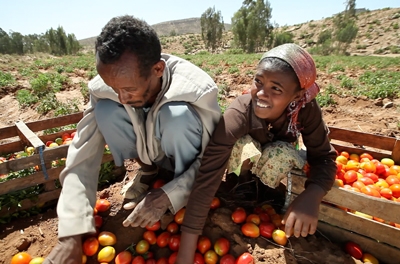Djibouti Learns about Direct Cash Transfer Systems and Cash for Work

Summary
Djibouti was heavily dependent on food and energy imports, while about three-fourths of its population lived in extreme poverty. The government had been exploring alternative ways for alleviating poverty through social assistance programs financed by international institutions, such as the World Bank. It was among the first countries to receive a grant from the Global Food Crisis Response Program (GFRP). The $5 million grant supported the elimination of taxes on selected food items such as rice, milk powder, sugar, and flour and the formulation of an action plan to improve social assistance to the poor. However, the allocation process was extremely slow and inefficient. Djiboutian officials wanted to strengthen their knowledge about social safety nets and employment through public works to help them make informed policy decisions.
To address the problem, Djiboutian officials looked for alternative social assistance programs. As part of an on-going dialogue on such programs, the Government of Djibouti requested the support of the World Bank.
In response the Bank funded, through its South-South Facility, the visit of a small Djiboutian delegation to Benin and Ethiopia, countries that had experience with need-based capacity building and direct transfers programs integrated into public works. The Bank facilitated a knowledge exchange between senior Djiboutian officials and professionals in Benin and Ethiopia to learn how to combine social welfare programs with capacity building for local companies and how to coordinate among donors, and public and private stakeholders. The objective of the study tours for senior Djiboutian ministry officials was to strengthen their knowledge about alternative options for social safety nets and deepen their understanding of the challenges in implementing and monitoring public works and cash transfer programs.
During the knowledge exchange, the Djiboutian officials also saw how to complement public works programs with direct cash or food transfers to broaden their reach. The participants also learned about the importance of community participation in planning, implementation, and monitoring of workfare programs. They understood the different policy options and implementation strategies for social assistance programs, as well as how to pilot capacity building programs for local companies and initiatives to improve access to finance.

 China
China Colombia
Colombia Denmark
Denmark India
India Indonesia
Indonesia Mexico
Mexico Russian Federation
Russian Federation Spain
Spain United Kingdom
United Kingdom